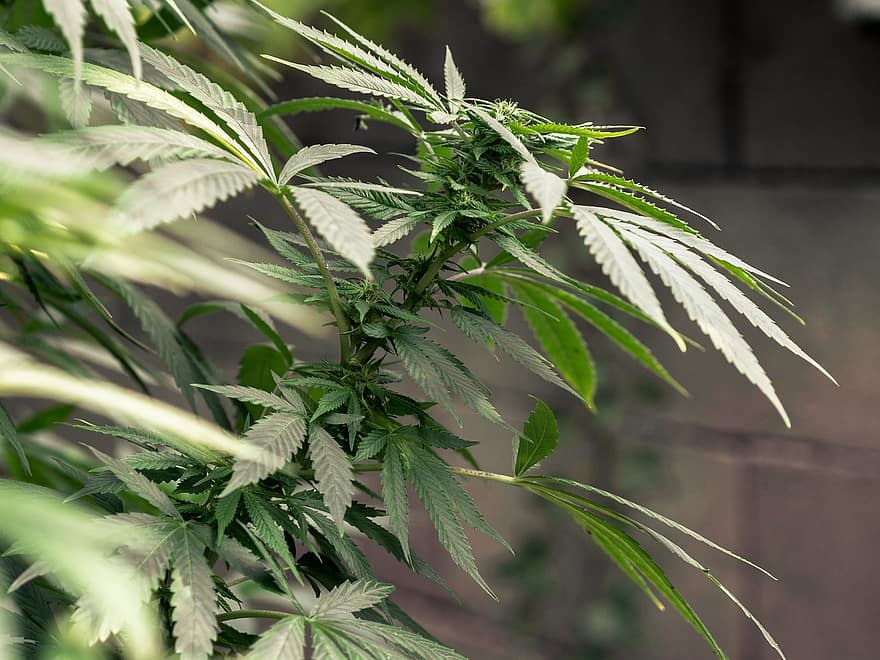Since the Rocky Mountain State is one of the first states to legalize hemp production, a lot of people are interested to learn how to grow hemp in Colorado. Thanks to its climate and soil type, it’s also one of the best states to grow hemp.
Do You Need a License to Grow Hemp in Colorado?
You don’t need a license to grow hemp in Colorado as long as you meet the requirements set for personal use. To grow hemp in your home, you need to be at least 21 years old and you need to abide by the following rules:

12 plants per residence
Under Colorado’s law on recreational use, you should have no more than 12 plants per home. However, your city may have different guidelines when it comes to planting hemp. It’s best to check in with your city and county ordinances before planting.
Grow hemp in an enclosed space
You should plant your hemp plants in an enclosed, locked space that shouldn’t be publicly viewed. For example, you can’t plant hemp in your backyard or outdoor garden, even if it’s enclosed in a fence.
If you have minors living with you (under the age of 21), you need to put your hemp in a separate locked space where they won’t be able to access the plants. If you don’t live with a minor, your hemp plants still need to be inaccessible.
Does Hemp Grow Well in Colorado? What’s the Best Climate for Growing Hemp?
You can grow hemp anywhere in Colorado, except in desert areas. If you want to produce the best crop, you may need to water your hemp plants more depending on where you live.
Unlike marijuana, hemp plants are adaptable. They don’t need to be planted in a controlled environment because hemp can grow in different environments. The roots of hemp plants usually go deep into the ground, so it’s capable of finding enough water supply.
While Colorado’s high altitude and thin air may be a problem for other plants, hemp can grow well in this environment. Even though it’s great to grow hemp outdoors, you can use a greenhouse to create an ideal indoor environment.
How Do You Plant Hemp?
Hemp plants grow best in alkaline soil. Thankfully, this type of soil is prevalent in Colorado, so finding a conducive environment for growing hemp should be easy. The minimum pH level of the soil should be 6, but for best results, go for 7 to 7.5.
Make sure to till the soil before planting your seeds and prepare a shallow bed. It’s better to sow your hemp seeds directly into the soil rather than starting in pots. The best time to plant hemp is when the last frost has passed and the soil temperatures are at least 50 degrees F. In this way, your seeds will germinate quickly and grow into tall, healthy hemp plants.
You want to space out your seeds well. Four inches is the general rule of thumb for hemp, but this ultimately depends on your space and desired yield. Place the seeds in soil depth of ½ or ¾ inch.
When it comes to tending your crops, make sure to effectively irrigate your hemp seeds, especially during the first month and a half. Hemp plants are usually tolerant of drought, but seedlings are more sensitive to heat and dryness in the first few weeks.
How Often Can You Harvest Hemp?
You can harvest mature heads of hemp plants after 90 to 100 days. As you grow your hemp plants, you can start to see the seed heads mature from bottom to top. It usually takes around 100 to 120 days until your hemp plants to be fully ready for harvest.
How Much Profit Can You Make by Growing Hemp?
According to a study from Cornell University, you can make around $130 to $730 for every acre of hemp plants. With a single hemp plant, you can make a profit from its roots, stalks, leaves, seeds, and flowers.
Growing organic hemp opens up a wide range of products you can produce – from food and health and beauty products to industrial textiles, building materials, industrial products, consumer textiles, and paper.
Learn How to Grow Hemp in Colorado Greenhouses!
Generally, gardening in Colorado can be quite challenging, especially during spring season when temperatures are erratic. When it comes to planting hemp, having a greenhouse is almost a necessity.
You need to keep your hemp plants locked up while ensuring they get the proper nutrients they need from the sun and water. Growing hemp in a greenhouse allows you to create a climate that’s suitable for your plants even if you’re growing them indoors.
Additionally, growing hemp in a greenhouse enables you to produce greater yields. You can grow your crops in an ideal climate during winter and extend its growing season. Other benefits of growing hemp in a greenhouse include more control of the growing environment; controlled lighting; filter the air to prevent cross-pollination; can add heating and cooling ventilation; higher yield and increased turn.
Final Thoughts
With the legalization of hemp in Colorado, it’s easier for you to grow hemp plants in your home.
Now that you have an idea of how to grow hemp in Colorado, the next step is to find a place to keep them. Krostrade offers greenhouses for gardeners looking to grow hemp in Colorado. Check out our website to view the different types of high-quality and affordable greenhouses that are suitable for any type of property.
